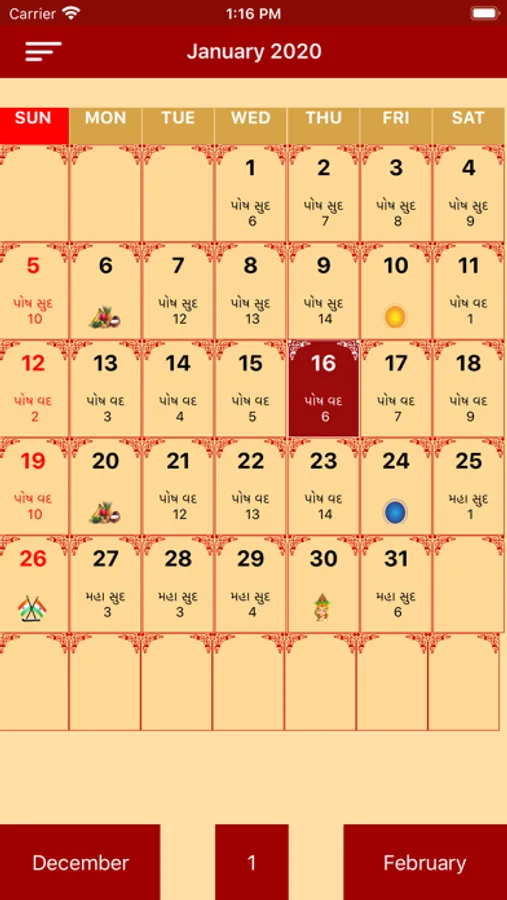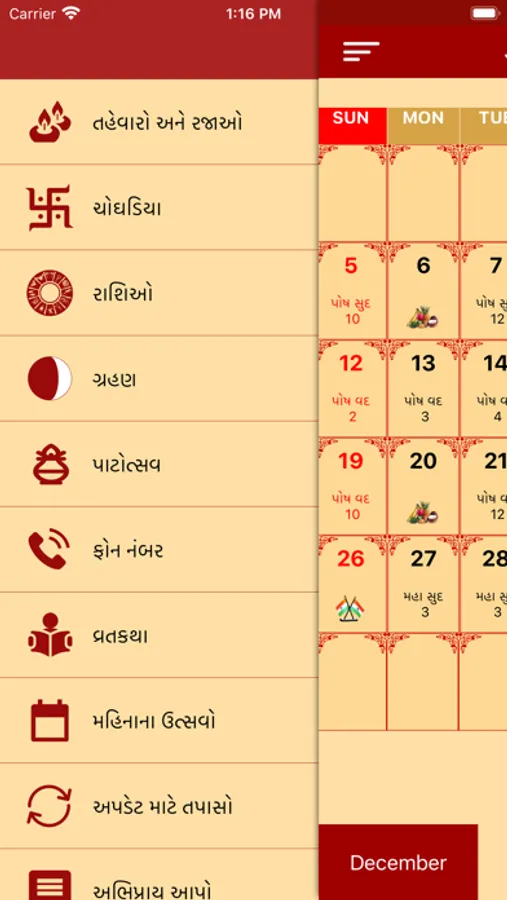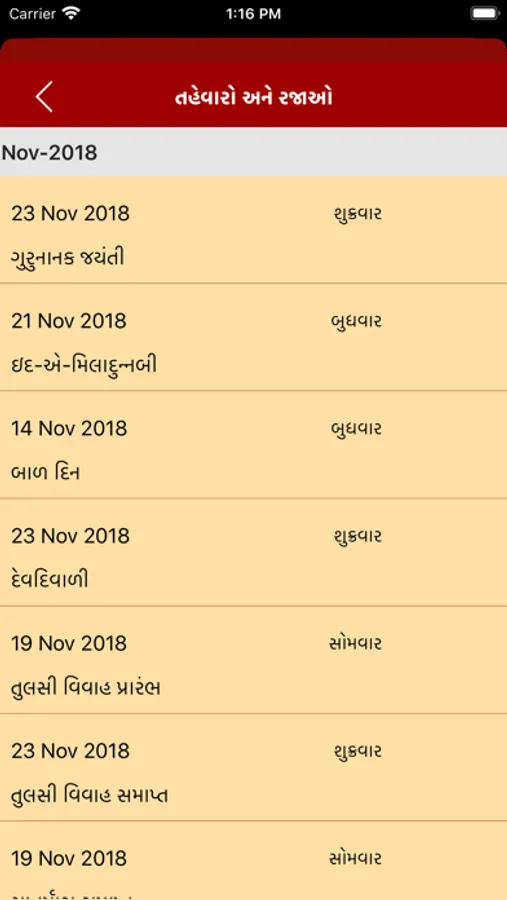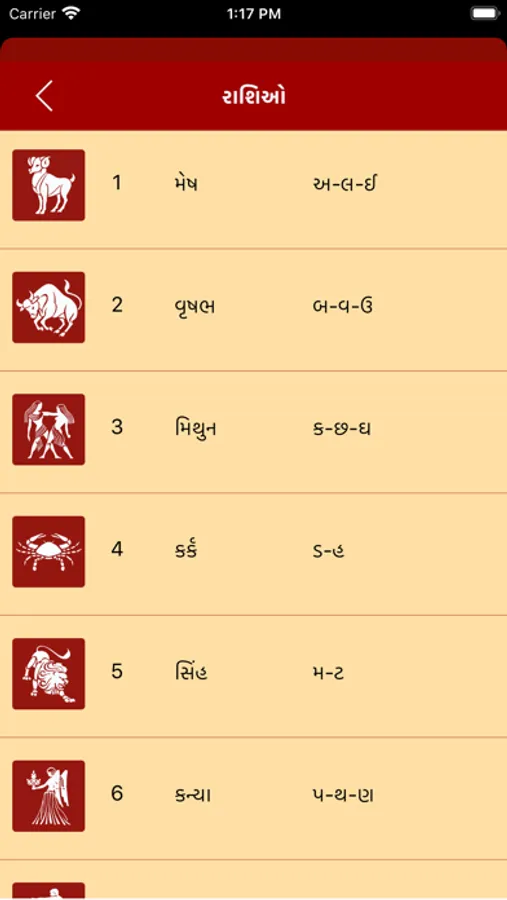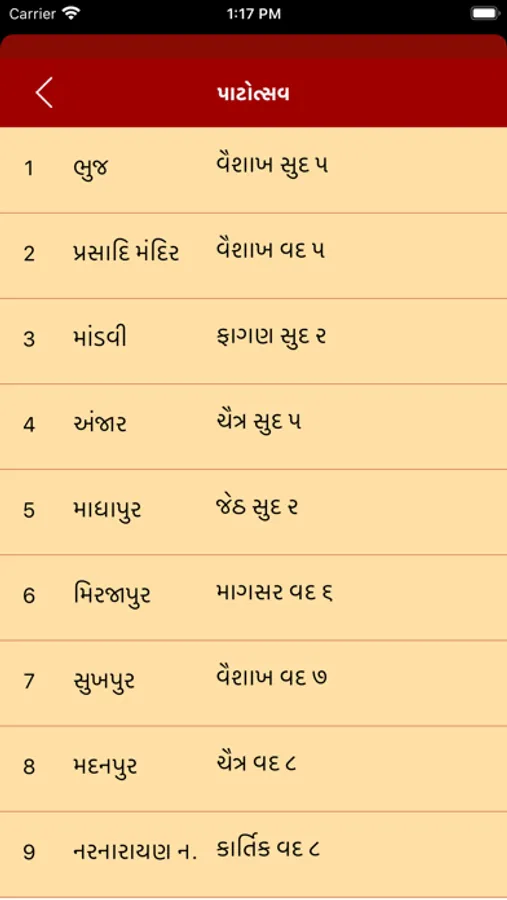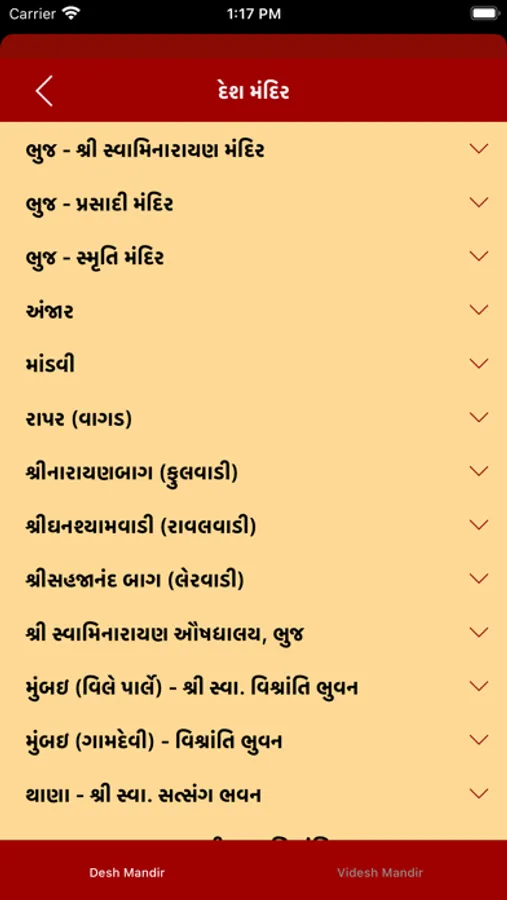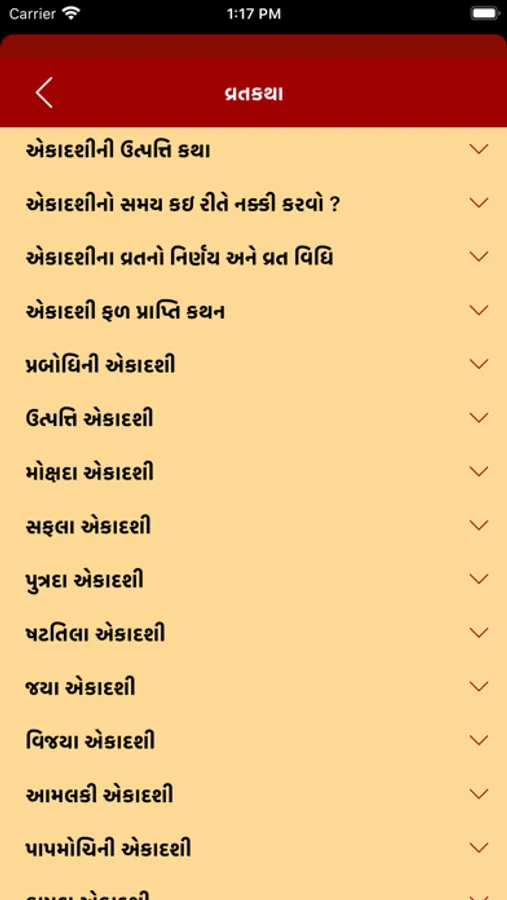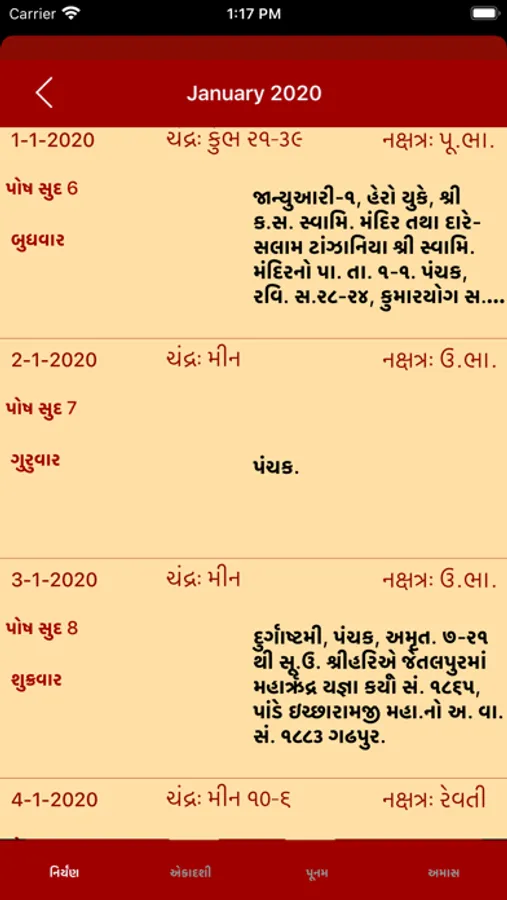In this Gujarati calendar app, users can view traditional lunar and solar dates and access detailed information about specific days. Includes visual representations of key events, date details, and festival timings.
AppRecs review analysis
AppRecs rating 4.4. Trustworthiness 45 out of 100. Review manipulation risk 46 out of 100. Based on a review sample analyzed.
★★★★☆
4.4
AppRecs Rating
Ratings breakdown
5 star
90%
4 star
2%
3 star
6%
2 star
0%
1 star
2%
What to know
✓
Authentic reviews
No red flags detected
⚠
Questionable review patterns
46% review manipulation risk - some review patterns appear unusual
⚠
Rating authenticity concerns
High rating concentration (90% 5-star) in sampled ratings
About Nirnay
Nirnay, Gujarati Calendar 2025
A simple Gujarati (Hindu) calendar with the traditional print copy look and feel but with the added benefit of user interaction to find more details about a specific date. The calendar will help you to find when the next Ekadashi is, what the Paksha (Sud,Vad) on a particular day is, when the next Poonam is (Full Moon) or the next Amavasya is and many more Hindu events in easy visual representations; due to images being used to represent key events, even a person who cannot read Gujarati is able to use the app.
In Vedic timekeeping, a tithi is a lunar day, or the time it takes for the longitudinal angle between the Moon and the Sun to increase by 12°. Tithis begin at varying times of the day and vary in duration from approximately 19 to approximately 26 hours. Tithi therefore is one of the most important aspect of the Indian Almanac or the Panchang as Hindu festivals and ceremonies are calculated based on this. The Hindu Calendar system is based upon the motion of the moon, each lunar year comprises of twelve months, each lunar year comprises of 354 days. This in comparison to the usual Georgian (English) calendar that we all use, leads to a difference in the number of days as the Georgian year consists of 365 ¼ days since it is based on the solar (Sun) system. To align the solar year with the lunar year, an additional month is added to the Hindu calendar every 3 years, this additional month is called Adhik Maas (Additional/Extra Month). Each and every second in vedic timekeeping is part of a Muhrat (moment), these can be auspicious or inauspicious depending on nakshatra and tithi (which are also auspicious and inauspicious)… sounds very complicated? It is complicated for most of us; thankfully we have this Nirnay iOS App which combines the lunar and solar calendar into an easy to understand format so that we can easily find out when we should celebrate Hindu festivals, when the most auspicious times are for various religious (and non-religious) activities so that we do things at a Muhrat which is good.
A simple Gujarati (Hindu) calendar with the traditional print copy look and feel but with the added benefit of user interaction to find more details about a specific date. The calendar will help you to find when the next Ekadashi is, what the Paksha (Sud,Vad) on a particular day is, when the next Poonam is (Full Moon) or the next Amavasya is and many more Hindu events in easy visual representations; due to images being used to represent key events, even a person who cannot read Gujarati is able to use the app.
In Vedic timekeeping, a tithi is a lunar day, or the time it takes for the longitudinal angle between the Moon and the Sun to increase by 12°. Tithis begin at varying times of the day and vary in duration from approximately 19 to approximately 26 hours. Tithi therefore is one of the most important aspect of the Indian Almanac or the Panchang as Hindu festivals and ceremonies are calculated based on this. The Hindu Calendar system is based upon the motion of the moon, each lunar year comprises of twelve months, each lunar year comprises of 354 days. This in comparison to the usual Georgian (English) calendar that we all use, leads to a difference in the number of days as the Georgian year consists of 365 ¼ days since it is based on the solar (Sun) system. To align the solar year with the lunar year, an additional month is added to the Hindu calendar every 3 years, this additional month is called Adhik Maas (Additional/Extra Month). Each and every second in vedic timekeeping is part of a Muhrat (moment), these can be auspicious or inauspicious depending on nakshatra and tithi (which are also auspicious and inauspicious)… sounds very complicated? It is complicated for most of us; thankfully we have this Nirnay iOS App which combines the lunar and solar calendar into an easy to understand format so that we can easily find out when we should celebrate Hindu festivals, when the most auspicious times are for various religious (and non-religious) activities so that we do things at a Muhrat which is good.
